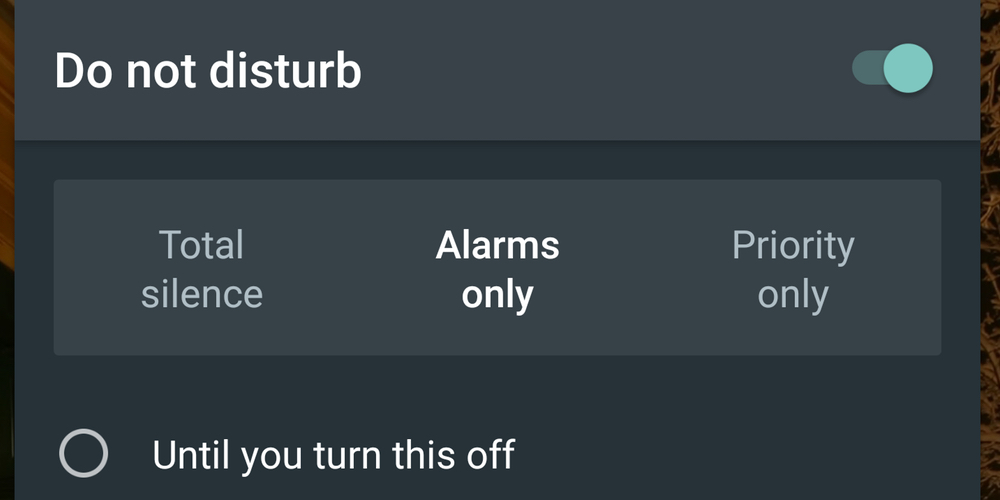
Android’s Do Not Disturb ‘until next alarm’ option has randomly disappeared

When Google released Android 6.0 Marshmallow, it removed one of the most useful Do Not Disturb features, and that was the ‘until next alarm’ option. For those unfamiliar, it allows you to turn off all notifications until your morning alarm goes off and saves you being woken up at a ridiculous time. With 6.0.1, the feature returned, but recently it seems to have vanished again.
A thread on Reddit deals with the issue and claims that even users who aren’t running Android Marshmallow have experienced it. Some claim to have seen it disappear from the options while looking at them. I’ve tried to set Do Not Disturb myself, and like the complainants, I don’t see the ‘until next alarm’ option anymore.
Thankfully, there is a sort-of fix: change your phone’s date to before or after the holidays. If, for instance, you change your phone’s date to January 1st 2016, it seems to reappear, suggesting this is a really weird bug, or Google was trying to make sure you spent less time looking at your phone during the holiday period. You’ll get the same result if you change your phone’s date to before December 25th, according to Android Police.
If you don’t want to mess with your phone’s date, the option should return automatically in the new year, once the phone’s date changes to January 1st on its own.






